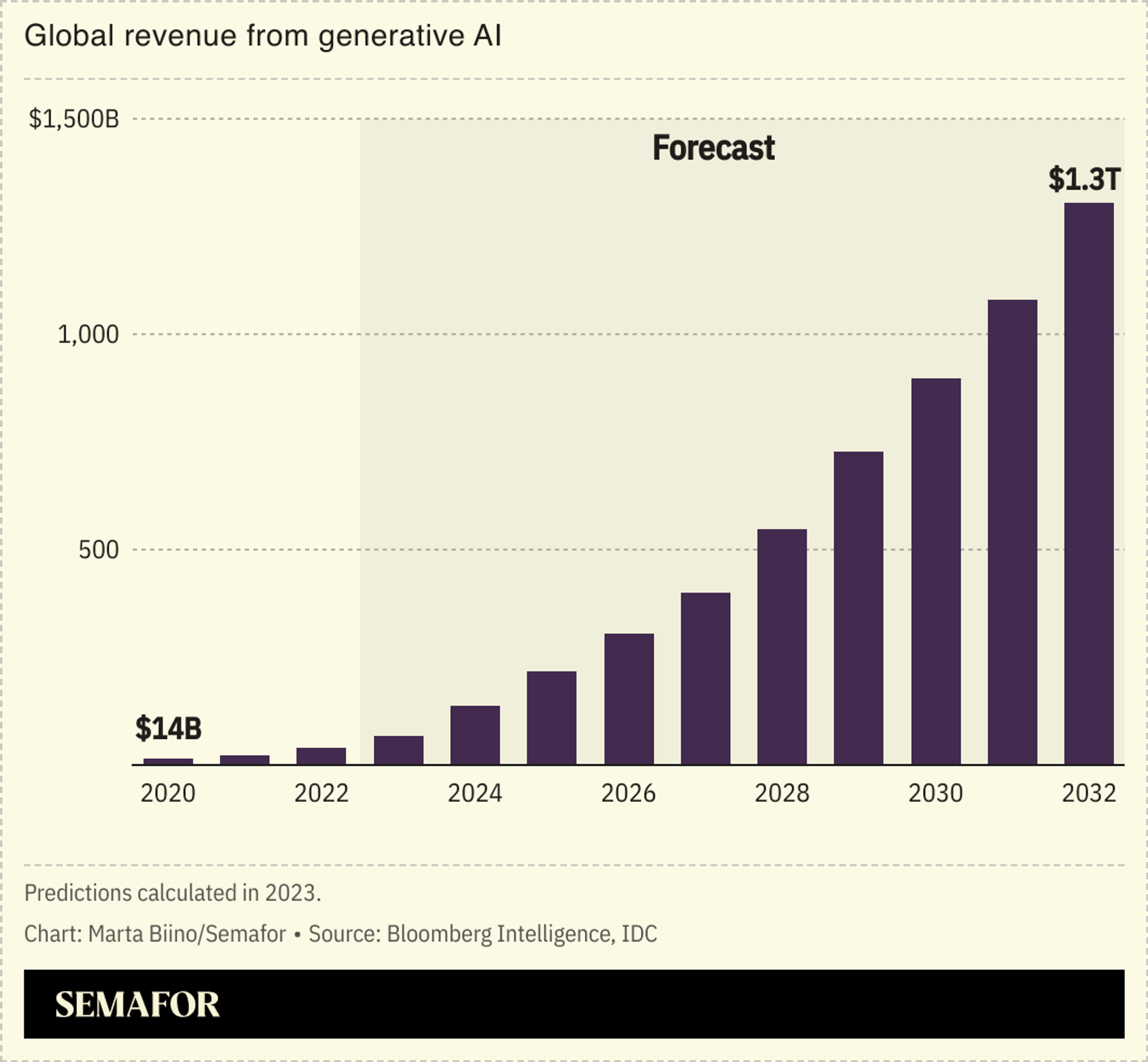The News
Two years ago, on Nov. 30 2022, OpenAI launched ChatGPT. Since then, the artificially intelligent chatbot has changed how the technology industry operates, put AI firmly in the political spotlight, and triggered a slew of investment in firms that have a hand in developing these tools.
So far this year, 35% of all venture capital-funded startups have been AI-related. In August, OpenAI, which is now valued at $157 billion, reported that ChatGPT had 200 million weekly active users.
Meanwhile, AI chipmaker Nvidia has expanded to become one of the world’s three most valuable companies by market cap. The company’s CEO has described ChatGPT as AI’s “iPhone moment,” referencing the Apple product that triggered a sea change in what users expected from a cellphone.
The chatbot’s release also generated what some experts describe as “AI anxiety,” with fears ranging from apocalypse to concerns over job losses. So far, however, those fears have largely not materialized, while other concerns over the technology — and its vast energy costs — have risen with its use.
SIGNALS
AI has propelled the tech sector to new economic heights
OpenAI’s CEO Sam Altman promised AI would bring “unimaginable shared prosperity.” So far, that goal “remains mostly on the horizon,” Bloomberg wrote, “but in this modern-day gold rush, the people making the pickaxes are already benefiting handsomely.” Investment bank UBS predicts the AI industry’s value will experience a 15-fold increase in five years, from $28 billion in 2022 to $420 billion in 2027. The six biggest tech firms — Google, Amazon, Apple, Meta, Microsoft, and Nvidia — have grown by $8 trillion in combined market value since 2022. The industry landscape is uneven, however: OpenAI had a monthly revenue of $300 million in August, a 1,700% increase since early 2023, but is burning through more cash than it takes in, The New York Times reported.

Trump’s approach to AI regulation remains unclear
As AI has proliferated, so has regulator scrutiny. Outgoing US President Joe Biden took a proactive approach with a 2023 executive order that set some “standards for AI safety and security,” and there is a sense that President-elect Donald Trump will take a similarly proactive stance, Axios reported, in part because of the influence of Elon Musk, who owns an AI company and is reportedly aiding Trump in selecting an “AI czar” to manage resources and ensure the US maintains its tech edge. Yet it remains unclear how Trump will approach regulation: he’s previously suggested scrapping Biden’s executive order, but Musk, who has advocated for some controls on AI, may sway him in a different direction, CNN noted.
To advance, AI may have to go beyond large-language models
ChatGPT showed the power of large-language models, but the next breakthrough may come via AI that is capable of both seeing and understanding how the world works, a concept AI pioneer Fei-Fei Li described in The Economist as “large world models.” Certainly, some in the industry have acknowledged that their technology may be hitting a plateau as new data to train the models becomes increasingly hard to come by, and incremental improvements don’t justify the sky-high computing costs. Such moments of stasis are not uncommon in tech, Semafor’s Reed Albergotti wrote, adding that the industry’s undoubtedly going to find a way forward. “The big question is how long it will take.”

